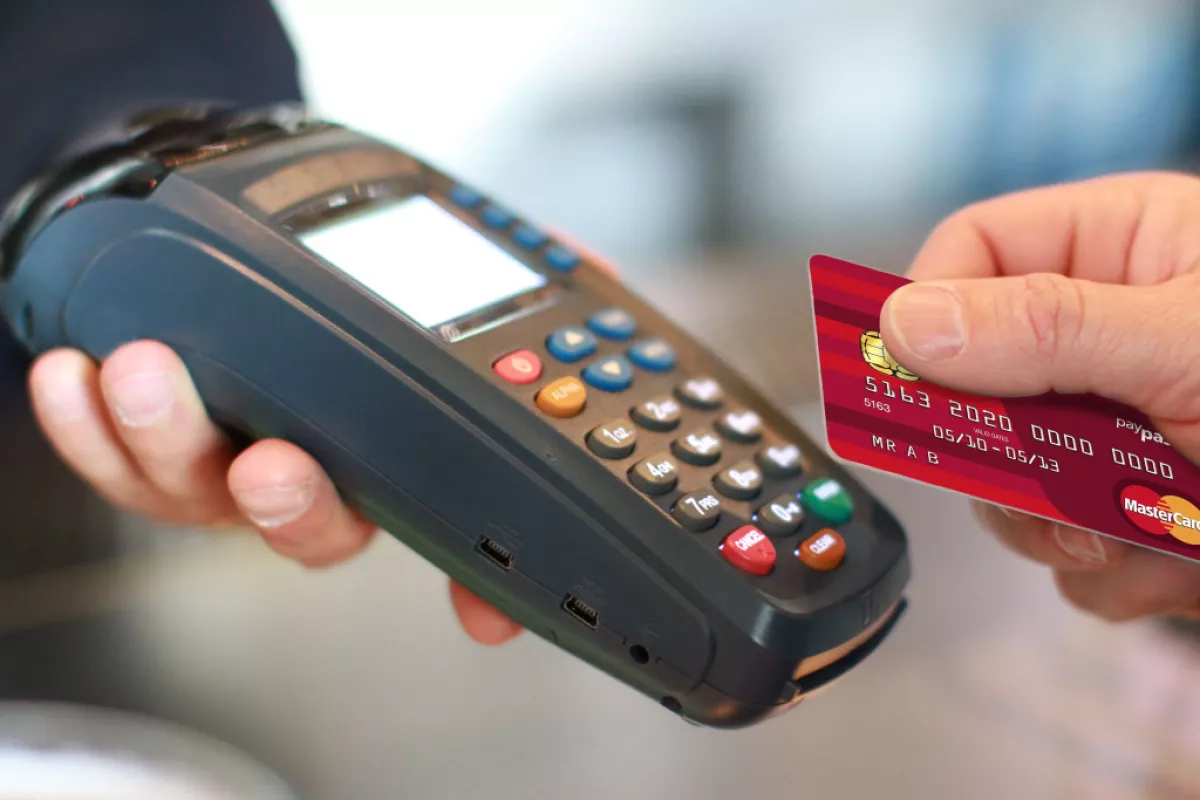Azerbaijan tightens cashless payment rules Fighting “grey” schemes
Azerbaijan’s fiscal reforms, which began five years ago, have been progressing successfully. These reforms aim to enhance transparency in the non-oil sector, reduce the shadow economy, and broaden the tax base. With key amendments to the Tax Code (TC), the optimization of administrative processes, and the expansion of cashless transactions, the State Tax Service (STS) has streamlined operations in most commercial, industrial, and service sectors across the country.
The issue of unreported profits has been largely addressed, and business turnover is now under the control of fiscal authorities. Currently, the STS is focusing on combating violations of cashless transaction regulations in small and micro-businesses, where some businesses are using card-to-card transfers instead of POS terminals to conceal their revenue.
The large-scale legislative and administrative reforms in the fiscal sector, which began in 2019, have significantly improved the business climate and strengthened public-private partnerships in Azerbaijan. Numerous amendments to the Tax Code have reduced the fiscal burden while simultaneously expanding the tax base, particularly by curbing the "shadow" turnover of industrial enterprises and wholesale trading structures.
Transparency has been further enhanced through the digitalization of employee registration mechanisms, a reduction in income tax, and the elimination of "envelope" wages. For several years, all processes related to tax declarations and other fiscal documentation have been fully digitized, with the State Tax Service (STS) leading a comprehensive digital transformation of tax administration. As a result, the share of voluntary tax payments from the non-oil sector now exceeds 90%.

A key factor in ensuring transparency in retail turnover has been the introduction of next-generation cash register machines (CRMs), which have provided reliable control across most large and medium-sized retail and service establishments. The use of these online machines has significantly strengthened reporting in the retail sector, preventing the illegal sale of goods and ensuring effective oversight of both cash and cashless transactions.
As of 2024, the number of CRMs nationwide has reached 100,000. From January to July, turnover through these devices exceeded 12.271 billion manats ($7.2 billion), marking a 10.1% increase compared to the same period last year.
The large-scale initiatives implemented under the "State Program for the Expansion of Digital Payments in Azerbaijan for 2018-2020," along with subsequent actions by the State Tax Service (STS) and the Central Bank of Azerbaijan (CBA) to promote and encourage cashless transactions, have played a crucial role in enhancing fiscal transparency.
One significant step in this effort was the amendment made three years ago to the law "On Cashless Payments," which mandates that the purchase of high-value goods—such as cars, furniture, household appliances, jewellery, and others exceeding 4,000 manats ($2,352)—must be made exclusively through cashless payments. A similar requirement applies to payments for medical services exceeding 500 manats ($294).
In 2023, cashless transactions exceeded 54% of total monetary turnover, and strong growth in this area has continued this year. According to data from the Central Bank of Azerbaijan (CBA), for the first three quarters of 2024, the volume of cashless transactions via payment cards within the country increased by 62.9%, surpassing 64.44 billion manats ($38 billion). During this period, the total number of payment cards exceeded 18.923 million, which is 18.7% higher than in the same period in 2023. In short, cashless turnover now dominates retail, enabling tax authorities to exercise more effective control, closing loopholes for "grey" schemes in wholesale and retail trade.

Despite the significant progress made in recent years, cash remains widely used in Azerbaijan’s small and micro-business sectors. This is particularly evident in street kiosks selling soft drinks, ice cream, and tobacco products, small fruit and vegetable outlets, barbershops, tailoring shops, shoe repair services, car washes, taxis, and especially food establishments, such as doner kebab stands, pastry shops, and other small fast-food outlets.
In some of these small commercial and service businesses, owners refuse to accept bank cards and insist on cash payments, often failing to issue receipts through cash registers. While many customers prefer cashless payments, the widespread use of cash in these sectors remains an issue. To avoid losing customers who rely on bank cards, while circumventing taxation by not using POS terminals, some micro-businesses resort to mobile applications to facilitate card-to-card transfer schemes, effectively bypassing regulations.
Despite repeated warnings and ongoing efforts to inform business representatives, these illegal practices continue, which has forced the State Tax Service (STS) to strengthen tax control measures in this area. Over the past two weeks, fiscal specialists have been conducting extensive monitoring to identify businesses using the card-to-card payment scheme. During these control activities, violations of the law were detected at establishments in Baku, primarily those involved in the food service and retail sectors. As of November 7, 150 of these businesses had been fined.
"Cashless payments must be made exclusively through POS terminals, and consumers must be provided with a terminal receipt as well as a receipt from the cash register. According to the current legislation — ‘On E-Commerce’ and ‘On Consumer Rights Protection’ — the installation of POS terminals and the provision of electronic payment options to consumers are direct obligations of taxpayers. Violations identified during tax control activities are recorded, and financial penalties are applied to these establishments," the STS said in a statement.

At establishments where the installation of POS terminals is mandatory, if the card-to-card scheme is used or cashless payments are refused, financial sanctions will be applied as follows: 1,000 manats ($588) for the first violation within the calendar year, 3,000 manats ($1,764) for the second violation, and 6,000 manats ($3,530) for the third and subsequent violations.
The State Tax Service (STS) emphasizes that the illegal practice of card-to-card payments, coupled with tax evasion, also leads to serious violations of consumer rights. "In such cases, consumers are not provided with a POS terminal statement or a receipt from the cash register, which limits the consumer's ability to assert their rights and claim part of the spent amount back as cashback. At the same time, this deprives consumers of the opportunity to use the VAT refund mechanism," the State Tax Service states.
The growth in transparency in the issuance of cash receipts and the strengthening of civic control over this process were facilitated by the implementation of the fiscal authority's VAT refund project. This mechanism has been continuously improved, and this year a new benefit was introduced, under which income earned through the VAT refund mechanism will not be taxed. A legal framework for exempting such income from taxation has been established in the Tax Code (TC).
Payments to citizens under the VAT refund mechanism have been increasing each year. Specifically, from January to September 2024, nearly 130.574 million manats ($76.8 million) were refunded to individuals, which serves as a significant incentive for the country's citizens to demand adherence to cash register reporting rules and to make cashless payments exclusively through POS terminals, avoiding consumer-unfriendly "grey" payment schemes.








